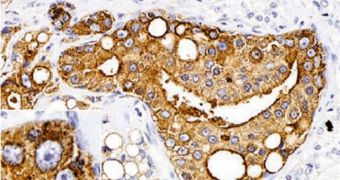For many years, scientists have been looking for an explanation to characterize a condition that they termed Chronic Fatigue Syndrome (CFS). Basically, people suffering from it are very tired all the time, and also exhibit a host of other symptoms for which doctors can find no biological explanation. Last year, a research group proposed that the condition might be linked to a viral agent, but now a new study shows that the link does not hold up against rigorous, scientific scrutiny, ScienceNow reports.
The recent findings basically throw this area of research back into the chaos that represented its main trait for years. People suffering from this condition usually report getting it after a severe viral infection, yet experts were unable to pinpoint which of the wide array of existing viruses might cause it. For many years, experts even doubted that CFS was a medical condition, with some saying that the patients were imagining the whole thing, and others believing that it was a psychiatric disorder.
Last October, a group of US scientists reported in Science that they discovered a potential viral agent that might be involved with triggering and favoring the development of CFS. In the journal entry, they wrote that 66 percent of 101 CFS patients they analyzed showed signs of fragments of DNA from the XMRV rodent retrovirus. In a 218-strong control group, the team found the same fragments in just four percent of the subjects. The link between the virus and the disease remained unclear, but the statistical correlation was strong enough to lead to the conclusion that the microorganism had something to do with the disorder.
Scientists from the Imperial College London (ICL), in the UK, won the race for debunking these claims, which sparked a wave of criticism around the world. In a paper accepted for publication on December 1, in the open-access scientific journal PLoS ONE, they show how they redid the American experiments. They looked at a sample of 186 CFS patients, aged 19 to 70, all of whom were unwell. They looked for scraps of viral DNA, both belonging to XMRV, and to another, related microorganism, but found no trace of such things. In a conference accompanying the publishing of their work, ICL Professor of Retrovirology Myra McClure, the leader of the work, said, “If there was one copy of the virus in those samples, we would have detected it.”

 14 DAY TRIAL //
14 DAY TRIAL //